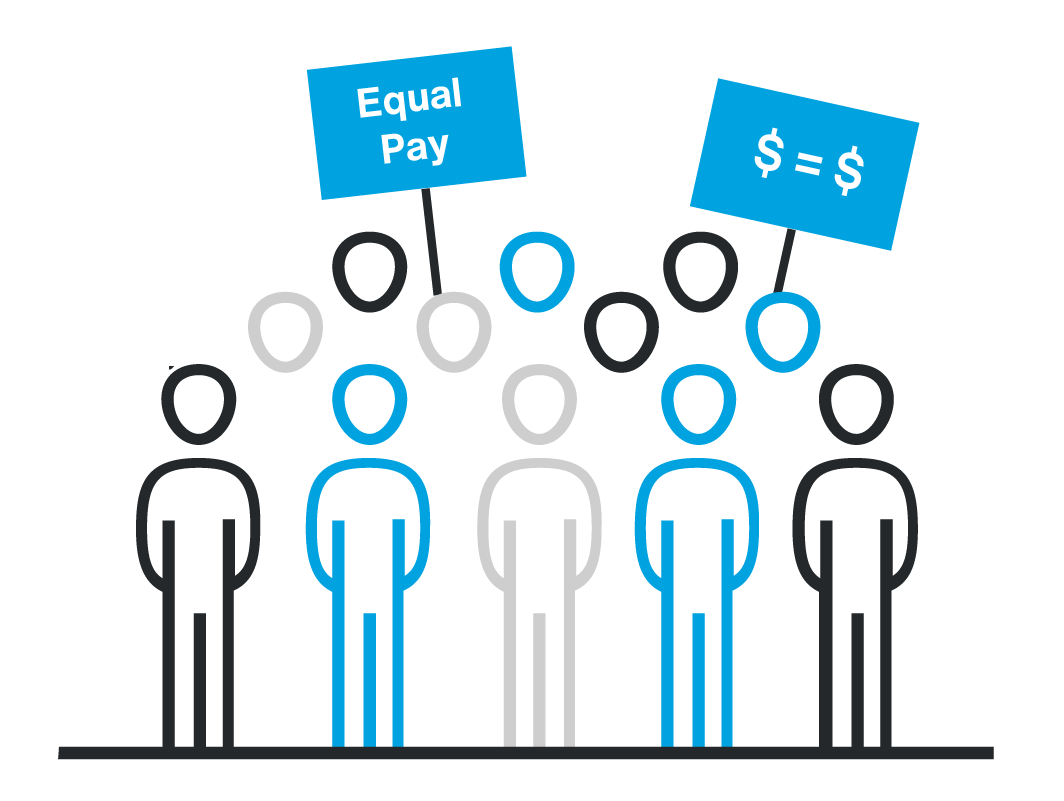
![]()
The UK’s Birmingham City Council issued two 114 notices in September, effectively declaring itself bankrupt. It now faces a staggering £760 million equal pay bill ($928 million).
Council correspondence suggests the final figure could amount to £1.15 billion ($1.4 billion). And the claim is growing by an estimated £5 million to £14 million ($6-17 million) per month.
As its financial debt spirals, the Council has halted all spending, except on essential Birmingham Services. These include schooling, housing, social care, waste collection, and road maintenance.
The outcome of the equal pay bill has major implications for other UK councils and organizations facing GMB Union action.
Background to pay discrimination claims
Equal pay disputes are not new to the largest local authority in Europe.
Birmingham City Council’s equal pay challenges began in 2010 when more than 4,000 female workers won the right to equal pay. In a separate case in 2012, the Supreme Court reached a similar decision for a further 174 women. Trade unions also claim it failed to implement a job evaluation system which would have identified pay disparities.
But the Council’s financial challenge goes beyond pay discrimination. Birmingham City Council also needs an estimated £46.5 million ($58 million) to fix problems with its new IT system. The final overspend is estimated at £80 million ($97 million).
Government Intervention on the Council’s Financial Challenge
The crisis at Birmingham City Council has prompted urgent UK Government intervention. Proposed emergency measures may include the sale of council assets. Those assets include a property portfolio valued at over £2.4 billion ($2.9 billion) and shares in Birmingham Airport and Library.
It’s not the first time the council has resorted to selling its assets. 2015 saw the sale of the NEC Group for £307 million ($374 million) to help fund £1 billion ($1.2 billion) of equal pay claims.
Difficult decisions to resolve the Council’s financial challenge lie ahead.
GMB Union pursues other UK councils
GMB Union is one of the biggest trade unions in the UK, boasting over half a million members. The organization has successfully pursued equal pay claims against other UK councils, including Glasgow City Council. Scotland’s largest local authority paid the final installment of a £770 million ($942 million) claim in June 2023. Funding was achieved by selling key council buildings to an arm’s length company before leasing them back.
According to the Financial Times, pay discrimination claims against local authorities may run to “many billions” of pounds. Sheffield City Council is the latest to learn it faces a mass equal pay claim. But the FT also names Sunderland and Coventry councils among several other local authorities in GMB’s “firing line”. Coventry Council alone estimates it is currently dealing with 175 equal pay claims.
Councils aren’t the only affected organizations. GMB Union members are currently suing Asda for equal pay. The Union claims its pay discrimination lawsuit could cost the supermarket chain £1.2 billion, and an additional annual pay bill of £400 million ($489 million).
In another high-profile equal pay bill UK retailer Next faces significant pay discrimination claims.
Equal Pay Bill in the UK
Introduced in 2010, the UK’s Equality Act means that men and women in the same employment, performing equal work, are entitled to equal pay. The right to equal pay applies to employees, workers (including agency workers), on full-, part-time, or temporary contracts. Apprentices, and self-employed people are also included.
The UK is struggling to make meaningful progress on closing the gender pay gap. Brexit excludes the UK from the EU Pay Transparency Directive, but the Government has pledged to retain women’s rights to equal pay. As part of its Inclusive Britain strategy, the UK Government has also issued guidance on voluntary ethnicity pay gap reporting.
Its Equal Pay Bill encompasses three categories of equal work:
- Like work: The work carried out is the same, or broadly similar.
- Work related as equivalent: Employers must implement a job evaluation system placing jobs carried out by the opposite sex at the same rating.
- Work of equal value: In this category, the work carried out is not “like work” or “work rated as equivalent”. It is, however, ranked equal in terms of the demands made on individuals.
Preventing future pay discrimination
As the Council’s financial challenge continues, councils and employers can take proactive steps to prevent further equal pay claims.
- Conduct an equal pay review: The most effective and accurate method of finding pay disparities is an intersectional pay equity audit. If pay gaps are identified, remedial action can be taken. Trusaic PayParity analyzes compensation across the intersection of gender, race/ethnicity, age, disability and more in a single statistical regression analysis. Employers identify and understand pay disparities, accounting for multiple demographic details.
- Review possible high risk areas for future pay discrimination: GMB Union highlights numerous practices carried out by Birmingham City Council that it considers discriminatory. These include men being given more time off than women, as well as bonuses and additional perks. Adding to the pressure is the fact that jobs under review have become more skilled but pay isn’t keeping up. Job categories being challenged as underpaid include cleaners, teaching assistants and catering positions.
- Implement a policy of pay equity: Birmingham City Council aims to implement a comprehensive job evaluation system by April 2025, reviewing every job, role, and its grading. Dedicated Pay Equity and Pay Compliance teams will oversee this process. That might not be enough. Its proposed job evaluation system has so far met with resistance from trade unions. Creating a system to ensure consistency in pay must be sustainable. It is not a quick fix, but it offers multiple benefits for employers.
We strongly recommend that employers scrutinize pay practices and compensation decisions to prevent pay discrimination claims and create a culture of inclusion.
Speak to one of our pay equity experts.



